Kleros Transparency Report
Kleros releases it's transparency report detailing all milestones covered plus financials for the company.
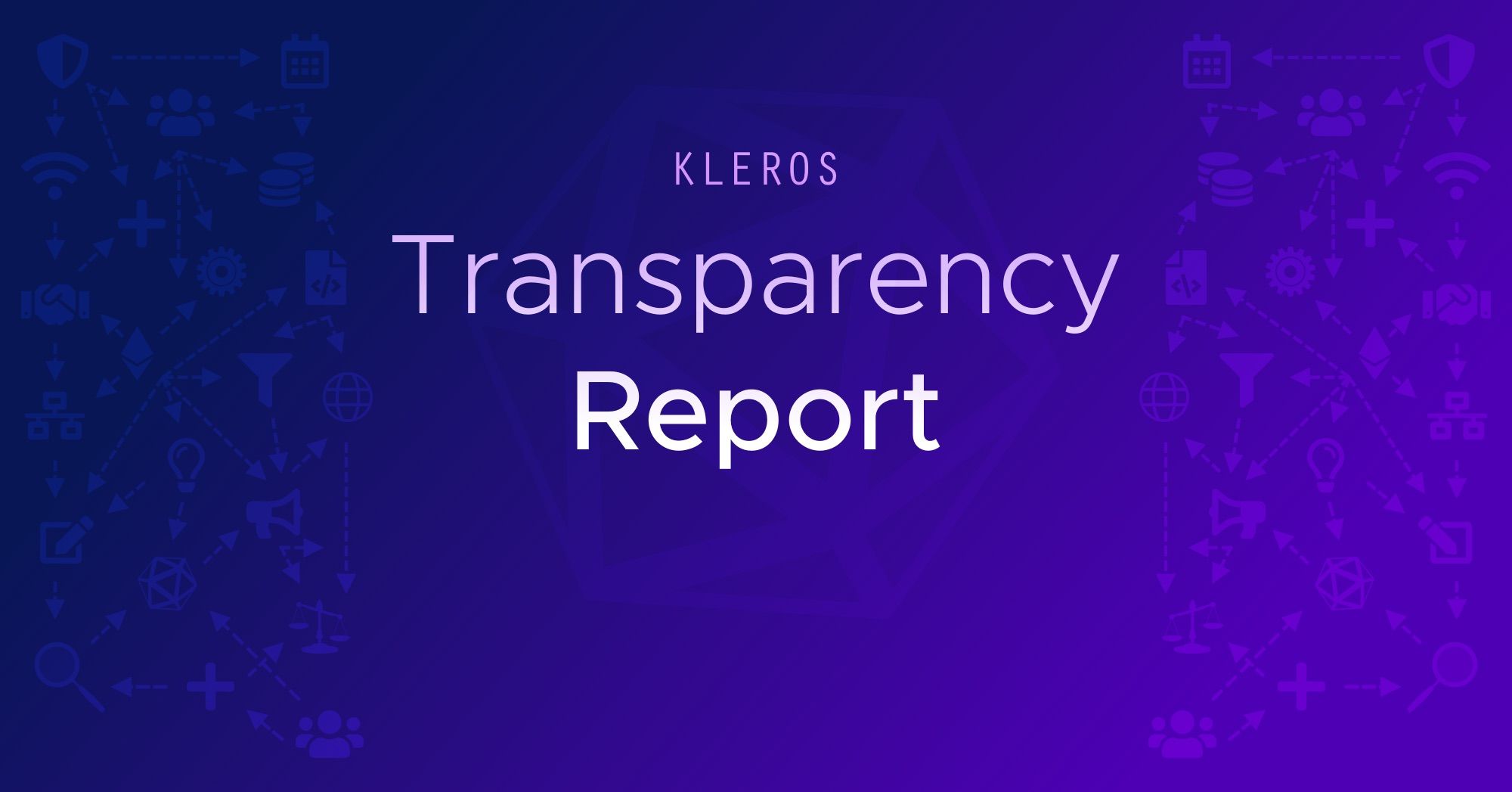
A look at what we built, what we researched and what we spent since the beginning of the project. A way for us to be accountable to our community...
It's been some time since May 2017, when the Kleros project started. This is a transparency report explaining to our community our history, our current activities and what we have achieved so far.
A Bit of History...
May 2017
Kleros project starts with the vision of creating an open source dispute resolution protocol for addressing the rise of disputes in the global digital economy. Through innovative cryptoeconomics, Kleros seeks to radically reduce resolution time and cost, while providing a fully secure and transparent resolution method.
June 2017
Publication of the first version of the Kleros white paper.
October 2017
Kleros proposes the ERC 792 arbitration standard. This defines a smart contract standard to allow for interoperability of arbitrators.
November 2017
First presentation of Kleros at a major Ethereum community event: Devcon3 conference in Mexico.
April 2018
Launch of Kleros' first prototype on the Ethereum Kovan test network.
February-May 2018
Roadshow of presentations at major industry events in San Francisco, New York, Paris, Seoul, Hong Kong and Singapore.
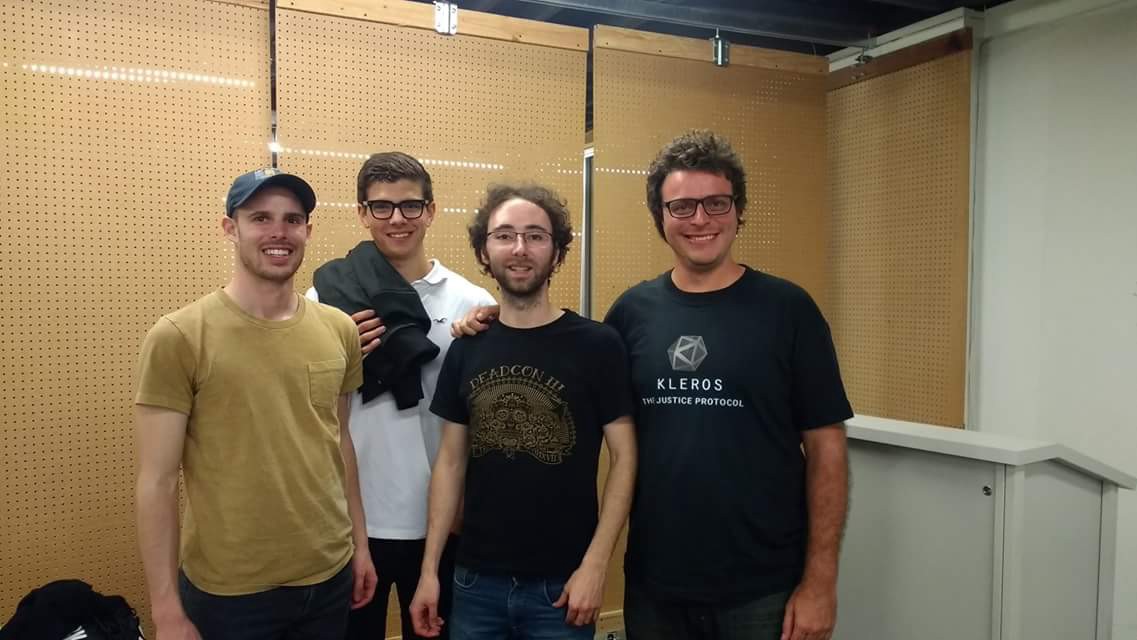
May 2018
Kleros joins the Thomson Reuters incubator.
May-July 2018
Kleros public sale of PNK token. The community contributes with 5800 ETH for 160,000,000 tokens - 16% of the total supply. Preparations for the sale included the smart contract and user interfaces for the first Interactive Coin Offering ever.
July 2018
Kleros launches on mainnet with the Doges on Trial cryptoeconomic experiment, conceived to test the incentives and security of the system.
August 2018
We launch the Kleros Fellowship of Justice program to promote research in four tracks about decentralized justice: DApp Development, Cryptoeconomics, Law & Society and Business.
The Fellowship attracts a diverse group of specialists, including lawyers, practicing, teaching and studying at places like Stanford Law School, Leicester University and the University of Alabama, as well as executives from financial companies such as JP Morgan and blockchain software development firms.
October 2018
Kleros proposes the ERC 1497 evidence standard, which defines how evidence should be presented in arbitrable contracts.
November 2018
The PNK token is available for buying and selling on IDEX, Bitfinex and Ethfinex exchanges.
March 2019
Launch of the new Kleros release, Athena, with a number of performance and user friendliness improvements based on new research and feedback from the Doges on Trial pilot.
Launch of the Token 2 Curated List Dapp, including a partnership with the exchange Ethfinex to use Kleros in their token listing process.
Publication of the book Dispute Revolution. Kleros Handbook of Decentralized Justice, which includes all the research we have done in the fields of computer science, cryptoeconomics, law and business.
April 2019
Launch of Kleros' Escrow Dapp, intended for doing escrow payments backed by Kleros.
The Legal Entity: Coopérative Kleros
The Kleros software and cryptonetwork is developed as a cooperative type of legal entity called Coopérative Kleros which is a Société Coopérative d’Intérêt Collectif par action simplifiée under French law (read this article to learn why we chose this type of legal entity).
The Head Office is located at 2 bis Rue Dupont de L’Eure, 75020 Paris.
The company is domiciled at ABCLiv, (registration number: 314 503 996).
The occupation of Coopérative Kleros is to create, develop and promote a computerized and decentralized dispute resolution protocol using blockchain technology.
Coopérative Kleros currently has 20 members. To join the Cooperative, please send an email to contact@kleros.io
Kleros Key Activities
The Kleros team conducts four main activities for the fulfillment of our mission: core development, integration development, research and communication.
Core Development
Core development activities includes defining the Kleros architecture, conducting security procedures and developing smart contracts for improving the security and efficiency of the protocol.

Integration Development
Integration development activities include building DApps for fostering the use of the Kleros protocol in different use cases of escrow, curated lists and oracles. This also includes assisting partners in their integration activities.
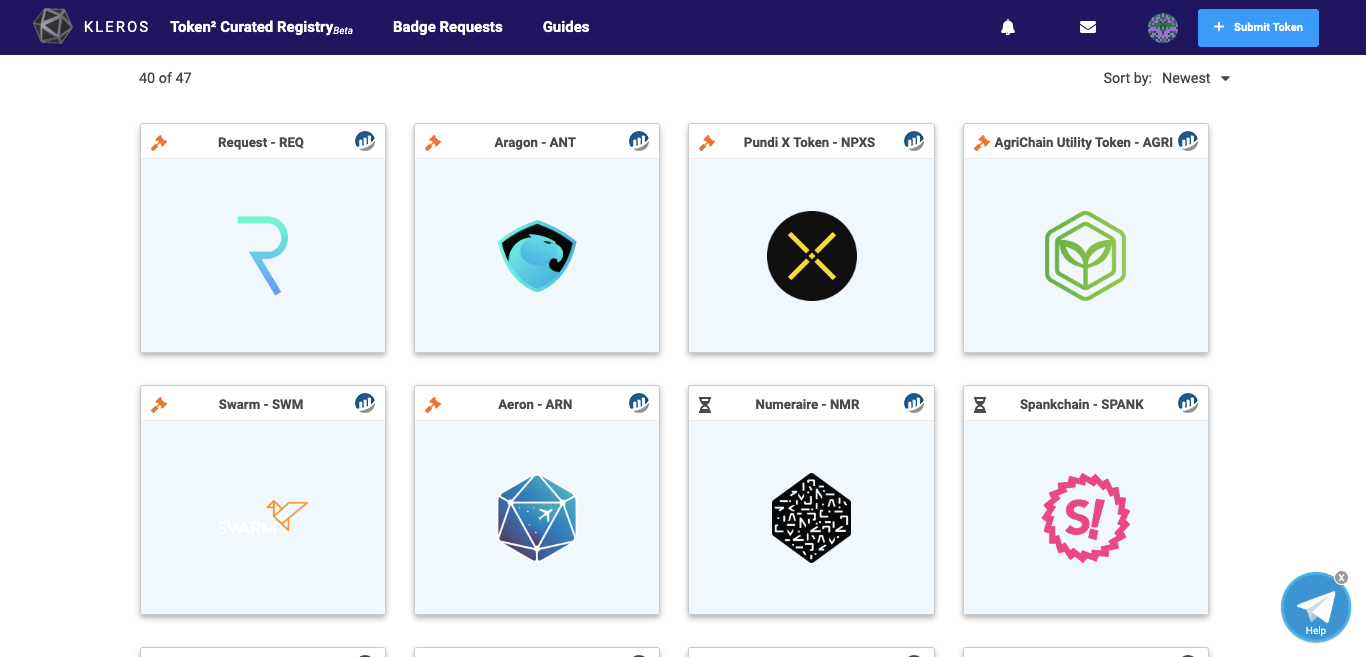
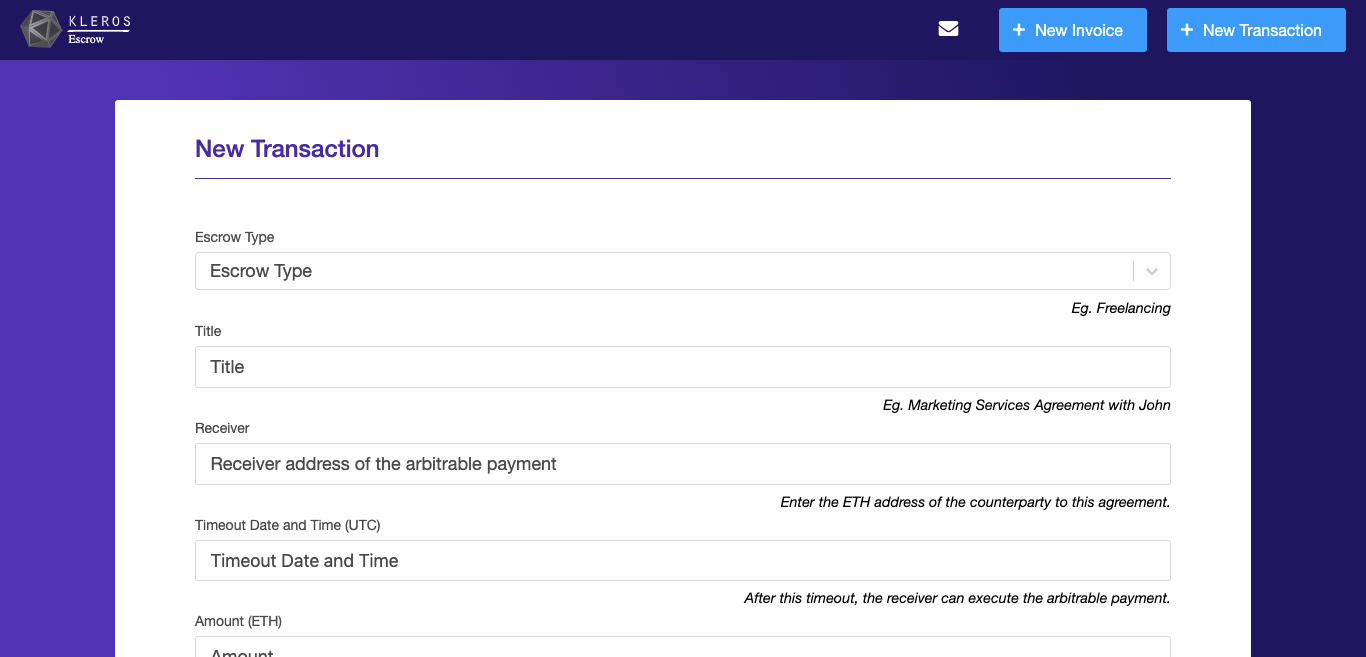
Cryptoeconomics Research
Our research activities have the goal of improving the security and efficiency of the protocol, as well as enabling new use cases.
Fees and Parameter Choices
We investigated constraints on parameters, particularly the fees that are paid by and to various parties, that can be applied so that Kleros should be resistant to various attacks (bank attacks, lazy voting attacks, etc.) and to encourage the participation of all parties (jurors as well as application dependent actors such as submitters and challengers in curated lists) in equilibrium. This research is conducive to making informed parameter choices that will encourage the kind of stable system that is resistant to attacks.
Arbitration Fee Insurance
We studied how fee insurance should be structured to maximally encourage the participation of economically self-interested third party insurers. These ideas are important in maximizing the defense against bank attacks and ensuring that there is an environment where actors with modest resources that are parties to disputes are not at too great a disadvantage relative to actors with greater resources. This is important for making sure that Kleros-based dispute resolution remains accessible.
Structures Around the Flow of Information
We built on the premise anti-pre-revelation games proposed by Vitalik Buterin designed to penalize participants in Schelling games from pre-revealing their votes. We adapted these ideas to the setting of Kleros and studied ensuing equilibria.
This work is important in giving us options on how to limit the influence of pre-revelation attacks and hence in preserving the assumptions of the underlying Schelling point game on non-communication between parties (and hence protecting the ruling process from being unduly influenced by attackers that might announce their votes).
Experiments
We conducted and analyzed cryptoeconomic experiments, particularly on the Doges on Trial pilot. These experiments allowed us to build on and nuance our theoretical results by giving us a sense of the behavior of real users, who are not always perfectly rational.
Particularly, we gained some insight into how users react faced with p+epsilon attacks. Furthermore, our observations of user behavior informed further research questions around data availability problems and the motivation of participants, particularly challengers.
Oracles
We explored the potential to use Kleros in oracles for real-valued quantities. We were able to prove desirable properties of this real-valued oracle that include incentive compatibility of actors and a user-tuned precision that should make it highly adaptable to user needs.
This will allow for a useful Kleros-based tool to other projects in the blockchain ecosystem and broaden the kinds of disputes on which Kleros will eventually be able to provide rulings.
Marketing and Communications
Our marketing and communications activities includes crafting and broadcasting Kleros message to the relevant audiences in order to foster higher adoption of the platform, more partnerships and users.
As decentralized justice is both a new field of research and a new industry, a big part of our daily job is to educate the public. We do this by regularly publishing articles in the Kleros blog, including interviews with academic and business leaders, and attending academic and business conferences to spread our work in decentralized justice.
In March 2019, we published the book Dispute Revolution. Kleros Handbook of Decentralized Justice. This book compiles research done in the fields of computer science, cryptoeconomics, law and business.
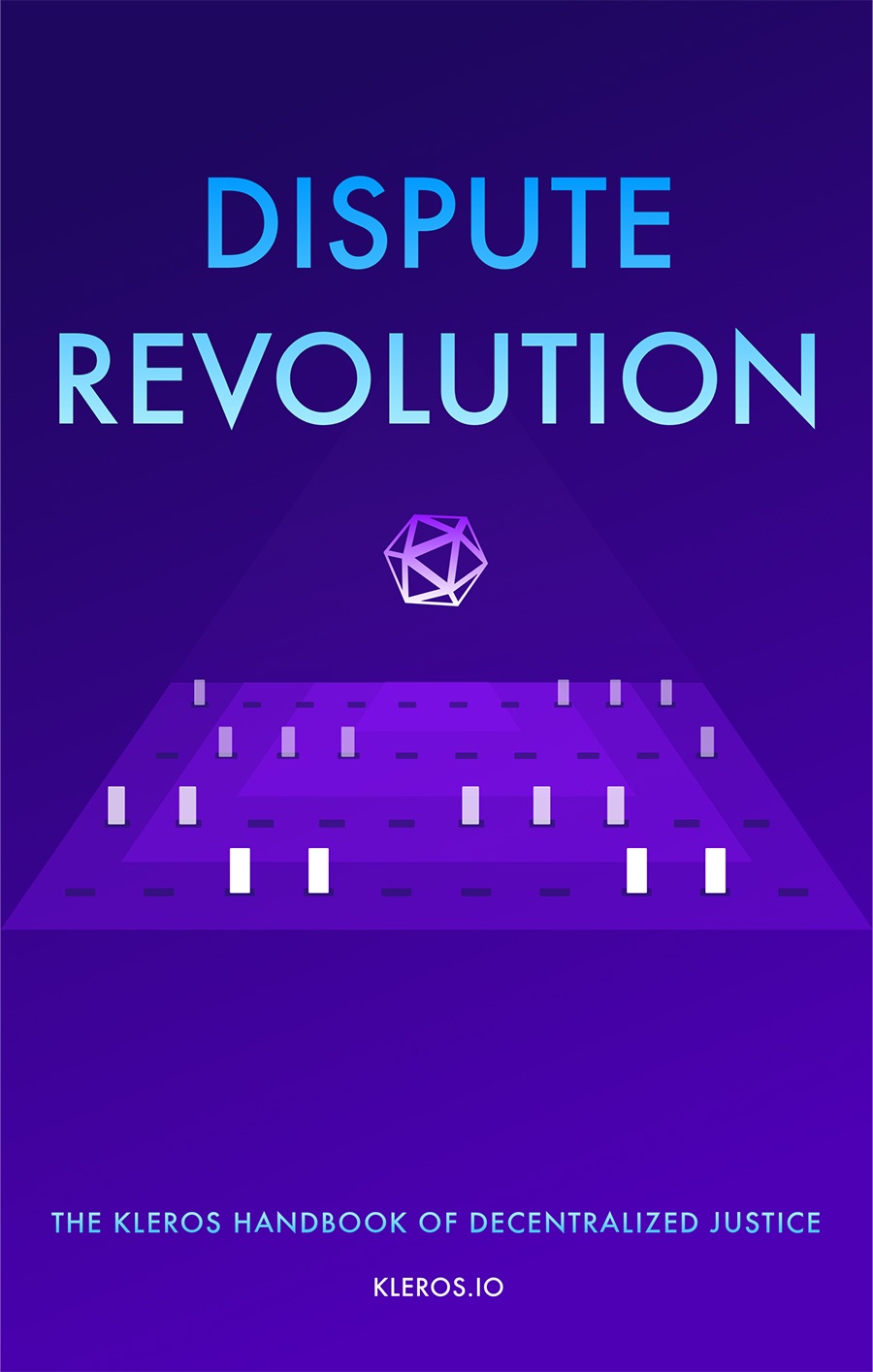
Financial Position of the Coopérative Kleros
The following numbers are valid up to the end of February 2019. All prices are in USD based on February 22nd 2019 exchange rate of the assets.
TOTAL ORIGIN OF FUNDS:
- Initial Capital of the company: 1000€
- Shares bought by the Coopérative partners (12): 600€
- Revenue from the 1st PNK sale: 5800 ETH
- Funds from Logical Paradise LDA: $439,957.84
Logical Paradise LDA is a company incorporated in Portugal that loaned Coopérative Kleros the funds to finance the company operations before the token sale.

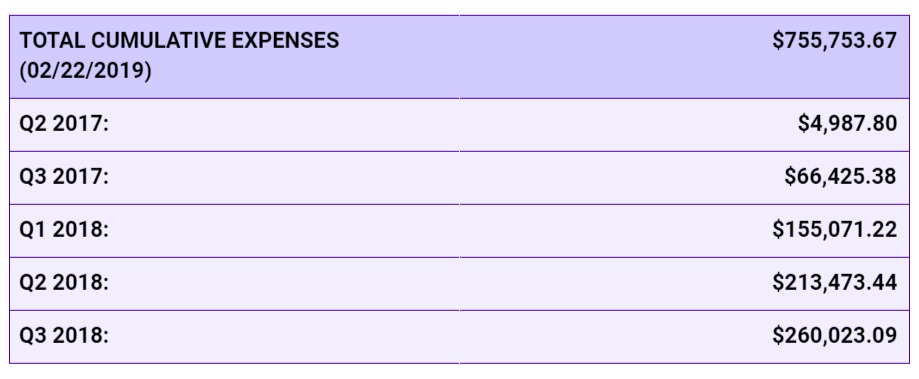

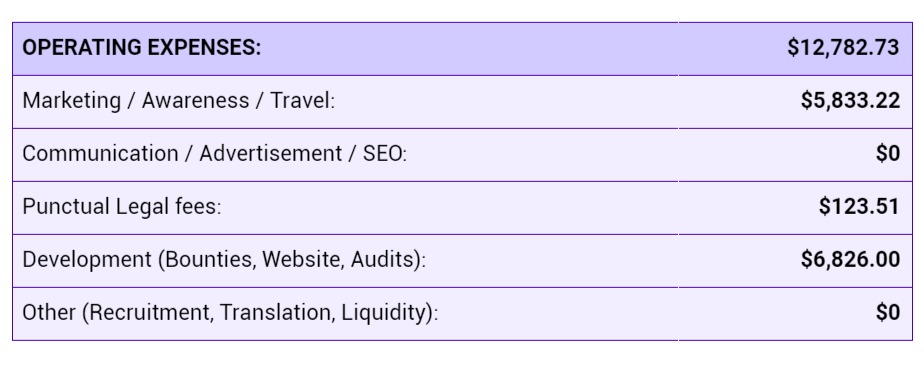
Token Allocation

In Summary...
In its short life, Coopérative Kleros has achieved a number of key milestones:
- We developed a highly innovative dispute resolution protocol.
- We recruited a highly talented and motivated cross-disciplinary team including computer scientists, mathematicians, economists and communication experts.
- We ran the Doges on Trial experiment to test the cryptoeconomic assumptions behind Kleros.
- We conducted research relevant to increasing the efficiency of the Kleros protocol and broadening potential use cases.
- We built a number of DApps to generate traction for the protocol.
- We succeeded in becoming a well established brand for dispute resolution in the blockchain ecosystem and is widely recognized for its quality and innovative aspect in the field of legal technology.
We are a mission driven project with a positive social impact for justice inclusion. Kleros dispute resolution protocol is open source and free for anyone to use. The Cooperative holds no patents on any of its code or other developments, which are freely accessible in Kleros Github. All our research is published openly at Kleros blog and free for anyone to use.
We are a passionate team with a clear goal of developing a protocol for secure, affordable and fast dispute resolution. We thank our community for their support in our mission of fostering access to justice opportunities for people around the world.

Join Kleros!
Join the community chat on Telegram.
Visit our website.
Follow us on Twitter.
Join our Slack for developer conversations.
Contribute on Github.


